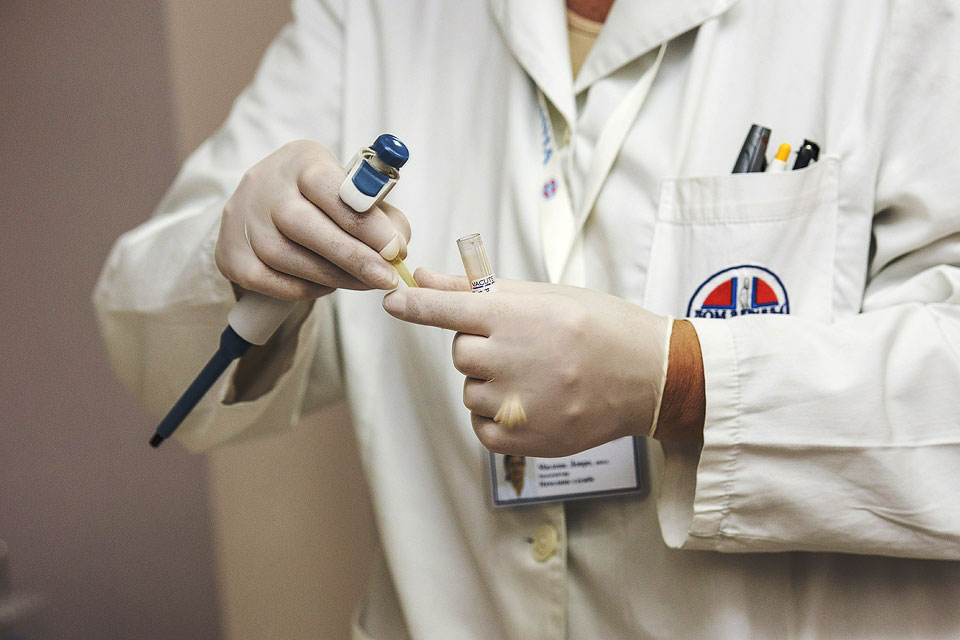
You’ve probably seen commercials advertising genetic testing to help you learn more about your health status, but the companies that offer these services are unregulated and don’t necessarily protect consumer privacy, according to a recent report by psychology professor Kieran O’Doherty and postdoc Emily Christofides.
Our DNA contains our genetic blueprint, dictating everything from our eye and hair colour to our predisposition for developing certain types of diseases. The sensitivity of this information requires that it be collected and protected by trained staff. Unlike medical and research facilities, which are required to protect patient confidentiality, direct-to-consumer genetic testing (DTCGT) companies don’t follow a similar code of conduct.
“These companies that do genetic testing for a fee are not bound by any of those kinds of relationships,” says O’Doherty. “They don’t go through research ethic boards; they are not bound by clinician confidentiality.”
The researchers found that 69 per cent of DTCGT companies’ websites did not contain any information about how genetic samples or results would be protected. “Most people expected they would be destroyed,” says Christofides, adding that many companies use genetic information for research or sell it to third parties for a profit. “The consumers’ expectation was not in line with what companies did.”
How accurate are the test results? “There’s a lot of debate around that,” says O’Doherty. It depends on the company and the type of test they use. Even if the science is accurate, he says, it doesn’t translate into what type of action consumers should take, whether it’s making lifestyle changes or following up with their doctor.
Patients undergoing genetic testing through a doctor’s office are required to undergo genetic counselling before and after the test to help them interpret the results and take the next steps. Receiving the results of a genetic test from a private company does not come with follow-up from a healthcare professional.
In some cases, consumers may discover they are genetically predisposed to developing a life-altering condition such as Huntington’s disease. Even those who come from families affected by the genetic disorder often choose not to be tested for it.
Genetic tests are often marketed as a tool to help consumers take charge of their health, a claim that O’Doherty finds dubious. He says advertising suggests the tests will help you make better decisions about your health, “and that’s not very well substantiated.” It’s unclear whether consumers actually change their lifestyle and whether the results indicate what types of changes they should make.
“A lot of the consequences are unknown at this point because it’s still emerging,” says Christofides.
Finding out that you have a pre-existing medical condition would require you to report it when applying for insurance, for example.
Could an employer base hiring (or firing) decisions on the results of genetic testing? Canada currently does not have any laws against genetic discrimination, although a bill is currently before the Senate.
Consumers also mistakenly believe that their genetic information will be kept anonymous but since everyone’s DNA is unique, it could easily be traced back to them.
O’Doherty says one of the most troubling findings from the report was the practice of sending someone else’s DNA – a child’s, spouse’s or relative’s – for analysis without their consent.
Both researchers feel that DTCGT companies should be regulated to protect consumers.
O’Doherty advises people thinking about getting a genetic test online to think about what they would do with the results. “Whether the information is good or bad, once you’ve got the information, you can’t easily forget it.”
The report was prepared for and funded by the Office of the Privacy Commissioner of Canada Research Contributions Program and was published in New Genetics and Society.